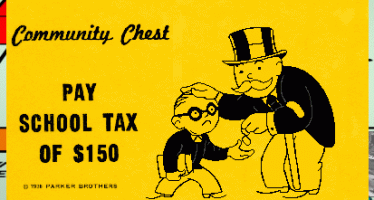California eases back on gun legislation
Guns are once again being targeted by California lawmakers this year, though the pace of anti-weapons legislation, seemingly on automatic for decades, has ebbed.
In previous sessions, you could scan for bills and come up with at least 100 that mentioned the word “weapon.” A search today yields 33 such bills, though the number could grow by the end of session in the fall.
Last week, a measure advanced that would bar concealed weapon permit holders from bringing their firearms to school and college campuses without permission from the school. The bill moved through a bipartisan Senate committee and on to the state Assembly.
Current law allows properly licensed individuals to carry in those places.
Other bills regarding weapons include:
- State lawmakers have tried to make sure BB and pellet guns are colorful enough for cops to discern them from the real deal.
- Under another measure, criminals convicted of firearms-related misdemeanors would be unable to possess or purchase a gun within 10 years of their conviction.
- A registered gun owner’s home address would be protected from public disclosure under Assembly Bill 1154.
- Another bill would reduce the fee for weapons licensure for members of the Armed Forces from $40 to $25.
Meanwhile, the courts are sorting out lingering issues from earlier legislation.
Those include a challenge to a requirement that gun owners in San Francisco keep their firearms stowed in a lock box in their homes, or disable them with a trigger lock, unless they’re physically carrying them. The U.S. Supreme Court was scheduled last week to consider a review of a lower court ruling against the plaintiffs, who sought to repeal the policy.
And of course there’s the “smart gun” bill from 2013, which would require owner-specific, microstamping technology on guns so that only the owner of the weapon could fire it. The requirement is on hold pending the outcome of a federal lawsuit from a gun rights group. The state prevailed in the lower courts, and the case is now on appeal.
California has some of the nation’s most restrictive gun laws, requiring background checks on all gun sales and banning a growing list of assault weapons — an issue explored in detail recently by the pro-gun rights site guns.com.
In recent years, crime in the Golden State has fallen while gun sales have exploded.
Sales more than doubled between 2008 and 2014, from 425,244 in 2008 to 931,037 last year, according to data collected by the state. Handgun sales went from 208,312 in 2008 to 512,174 in 2014.
[Related: Banned guns not the ones used in crimes]
Regardless, some could say the state’s firearms policies are working.
A report by the state’s Department of Justice noted that from 2012 to 2013, “every violent and property offense category decreased in number and rate per 100,000 population.”
According to the report, the violent crime rate fell, and the homicide rate, after climbing 4.2 percent in 2012, dropped 8 percent in 2013 to 4.6 murders per 100,000 people.
The crime rate has dropped before, as in 2010 when the statistics were trotted out and Gov. Brown said that “crime remains a serious problem in California, and law enforcement officials at every level must redouble their efforts to ensure public safety.” Even back in 2006, the state had relatively low levels of crime, ranking 14th in the U.S. for violent crimes.
Some have pointed to the firearm prohibition laws as the reason for the drop.
“At a domestic level, California is a prime example of legal reform curbing gun violence,” wrote Isaac Saidel-Goley in a report in February at the American Constitution Society for Law and Policy’s Harvard chapter. “Over the past 20 years, California – along with a few other states, including Massachusetts and New York – has pioneered the domestic implementation of gun control by passing laws enacting widespread firearm regulation, including banning assault weapons and high-capacity magazines, prohibiting individuals from openly carrying firearms in public, prohibiting domestic violence abusers from acquiring firearms, and establishing numerous firearm safety standards.
“These gun control laws have achieved remarkable success in preventing gun violence.”
Gun advocates, however, credit the increase in weapons purchased, a theory advanced in the 1998 book by academic John Lott, More Guns, Less Crime.
Steve Miller can be reached at 517-775-9952 and [email protected]. His website is www.Avalanche50.com
Related Articles
Parcel tax change wouldn't help poor schools
sms spy android Does government need to grab more money for schools? One way to get it is to
Covered CA facing 2015 adjustments
After posting some of the biggest numbers in the Obamacare firmament, Covered California is putting the squeeze on Golden Staters.
Video: Schiff: The next economic crisis
Can we spend our way toward prosperity? Will the world move away from pricing oil in dollars? Peter Schiff tells





